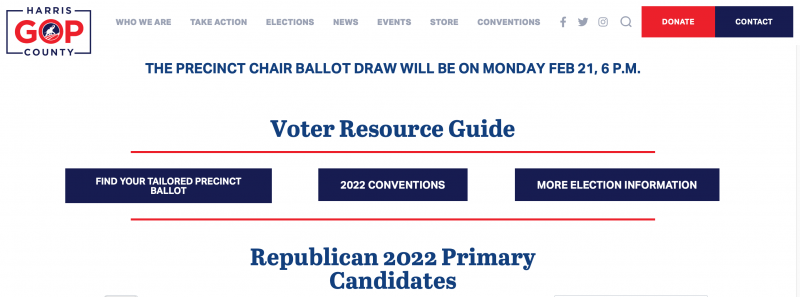In part two the political history and optics of the situation were examined. Next is examining how this fight can partially define the party going forward, and the consequences of the fighting, and some final thoughts.
Defining the party
The democrats were going to use the issue to try and inflict harm on the party. If a plan had passed in the regular session their ability to have an argument take root would have been limited. Now, with the battle being waged so intensely and publicly the conditions are set for the democrats to use this as a messaging tool to say this is who the party is. The longer this battle drags on (not counting a pause for the impeachment trial) the more effect the democrat messaging becomes.
The potential messaging is easy to see. If the House plan passes the democrats will use Lieutenant Governor’s messaging that the House plan favors business and the wealthy over everyday Texans. This is gift wrapped to stick since it is the same message that is being used now. They don’t even have to create the argument – they can use the statements and say this is who won the fight for the party and what they represent.
If the Senate plan prevails the attack will be different. Whatever it may have been; now it will be a version of look how dysfunctional the republicans are. That message is less effective, but with the great message discipline within the democrat party it will cut through the background noise of the next cycle and be an issue. I do not think we should let the democrat response dictate which plan passes, but we do need to be aware that the longer and uglier this battle becomes the more the end result defines the party.
Consequences
The time to avoid negative consequences has passed. What was a great win for the party now will have negative consequences. The everyday Texan, regardless of political affiliation, likes having more money in their pocket because of political action. Sure, democrats may argue the money could have been better spent, but in the end that message won’t resonate since it is in the context of people having more money in their pocket. Property tax relief is a winner. Now, the damage has been done and the political windfall that comes from passing relief is lessened by how it passed.
Other, more dangerous, consequences are of greater concern. Infighting creates bad blood. Look at how well Harris County Republican Party ran with Gary Polland was at the head of the party. While open infighting isn’t the main reason subsequent chairs haven’t had success; it has made opposition messaging easier and caused bad blood that has hurt the party. The same will follow on the state level.
Governor Abbott’s vetoes are going to make the problem worse. Not only have significant intraparty divisions occurred and taken hold, but the vetoes and soliciting pushback against Lieutenant Governor Patrick are going to create bad blood among people who are negatively impacted by the vetoes. This group is going to remember what happened, and be motivated to do something. No idea how that something will manifest, but even if it’s just not donating and having a long memory a direct negative effect will follow. A motivated, unhappy, group of individuals who are already involved in the community in some way is a problem. It’s one that will have to be resolved, and could make a noticeable difference in the next primary cycle.
One other significant consequence is possible. Lieutenant Governor Patrick is probably the only person who could mount a significant primary campaign against Governor Abbott. They are both up for election in 2026, and Lieutenant Governor Patrick has already said he will run for reelection in 2026. Does this change the office he intends to seek? If so, this impacts the top two races on the ballot, and creates significant divisions in the party.
Concluding Thoughts
On the merits the Senate plan should prevail. I own both a home and a business so see both sides of the issue, and side with Lieutenant Governor Patrick on the issue. While neither plan significantly impacts appraisals, and other legislation is needed to address this aspect, people are being taxed out of their houses. As a matter of political governance the Senate plan affords some relief to businesses, but helps homeowners the most, which is both a greater good and helps people becoming a political winner. Also, the dollar amounts saved by homeowners are more likely to be spent as discretionary income creating economic benefits to small businesses, many of which are still hurting from Covid.
Of more concern, though, is the damage that the infighting has caused. Of all the principles, Lieutenant Governor Patrick has come out the least damaged and holds the moral high ground. He is trying to help the everyday Texan, and has continued to work to pass legislation in the special session despite the House adjourning sine die after one day. To the extent anyone looks like the adult in the room he does. He also has a change to seize the narrative by judiciously using the impeachment trial to create a space for everyone to cool down before the tax plan is taken up again.
County parties are going to be hurt by what has happened in Austin. The county parties need to start making the messaging relatable – reduction rather than compression as an example. More importantly, they need to take the time to shore up relationships with anyone who is hurt by the infighting and remind them that the county party is not involved in the fighting and relies on continued support.
No one wins here, but hopefully enough damage control can take place to limit the amount of harm that occurs.



